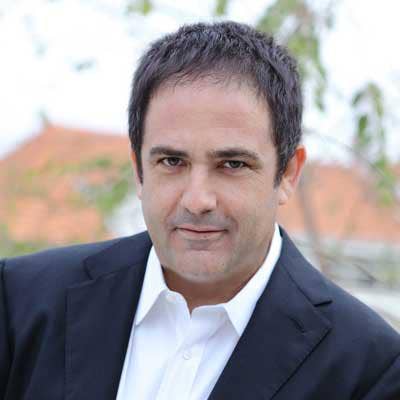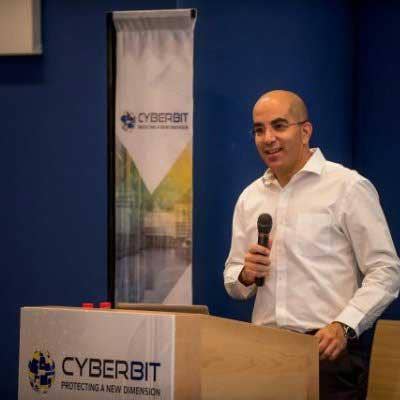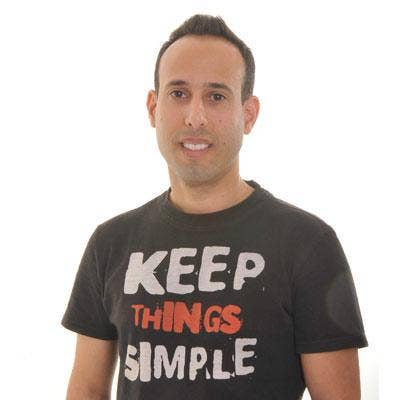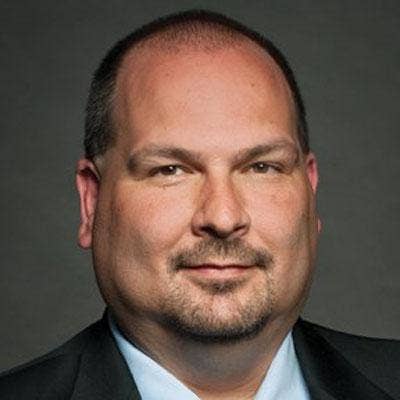The 10 Coolest Security Startups Of 2016

The Evolving Cybersecurity Market
Cybersecurity continued to reign supreme in 2016 as one of the hottest markets for startups. The year saw the emergence of new classes of startups to solve rising problems, as well as the growth of more established startups into full-fledged companies ready to take on legacy security players. This year's roundup of coolest security startups of the year includes new technologies for orchestration, analytics, cloud security, the Internet of Things, and a continued rise in endpoint detection and response. Despite all that growth in technology in 2016, many cybersecurity problems remain unsolved and the innovation around security will surely only continue to accelerate going into 2017.
(For more of our 2016 retrospective, check out 'CRN's 2016 Tech Year In Review.')

Bastille Networks
CEO: Chris Rouland
Bastille Networks touts itself as the first cybersecurity company to detect and mitigate threats from the Internet of Things, an area that is of growing importance to both customers and partners. The company uses security sensors, software and airborne emission detection to create an enterprise-grade IoT security product that scans an organization's air space for threats. The product allows enterprises to detect, localize and assess security risks by safely and privately scanning a corporation's air space to give visibility into every emitting device on premise. Founded in 2014, Bastille's solution became generally available in October of this year.

Cato Networks
CEO: Shlomo Kramer
Cato Networks is looking to disrupt the network security market, with a software-defined network security solution that uses the cloud to consolidate WAN and internet traffic, and layer enterprise-grade security offerings -- such as a next-generation firewall -- on top. The offering has two primary parts: the Cato Cloud Network, which consolidates and encrypts all enterprise network elements using a global network of points of presence, and the Cato Network Security Services, which then adds enterprise-grade security offerings on top of the network. The company landed $30 million Series B funding this year, on the heels of what co-founder and CEO Shlomo Kramer said was "excellent traction" since it officially launched into the market in February.

Cyberbit
CEO: Adi Dar
Cyberbit, a subsidiary of Israel-based Elbit Systems, focuses on solutions for protecting critical infrastructure and other high-value assets. The company's technology hits on the hot security areas of endpoint detection and response, as well as security orchestration and automation. The Israel-based startup has landed some big executive additions this year as it looks to push into North America and the channel, appointing former Symantec Americas Channel Chief Stephen Thomas as vice president of sales for North America in April. The company has since launched its first North American partner program.

Cybereason
CEO: Lior Div
Cybereason, based in Boston, Mass., looks to take the offensive on cybersecurity, while other companies are often looking to play defense. The endpoint detection and response company was co-founded in 2012 by former members of the Unit 8200, Israel's equivalent to the NSA, and offers a "military-grade" solution that prevents and detects attacks, then, in the case of an incident, identifies the root cause, timeline, endpoint affected and tools used. This approach is designed to give full visibility into the lifecycle and magnitude of an attack. This year, the company expanded globally, opening a new office in London to serve the EMEA market, and formed partnerships with Lockheed Martin, Wipro and more.

Darktrace
CEO: Nicole Eagan
Darktrace offers what it calls an "Enterprise Immune System," a set of solutions that uses machine learning, mathematics and intelligence experts for better threat detection capabilities without the use of signatures. The startup was founded in 2013 by University of Cambridge mathematicians, machine learning specialists and experts from MI5 and GCHQ. The company has been on a rapid growth trajectory since it was founded, with a valuation of $500 million, $90 million in recent venture capital funding and rumors of an IPO on the horizon.

Illusive Networks
CEO: Shlomo Touboul
Illusive Networks, based in Tel Aviv and New York, is breaking its way into the emerging market for deception technologies with its Deception Everywhere solution. The solution is based on the premise that attackers will inevitably get inside the perimeter and uses an agent-less approach to "turn the tables on attackers" by installing decoy data onto laptops, desktops, servers, data centers and more to root out attackers already in the environment. The company started 2016 with a big push into the channel, appointing former Extreme Networks channel chief Tracy Pallas as its first channel chief and aligning its investments toward a partner-first approach, looking to ultimately sell 100 percent through the channel.

Phantom
CEO: Oliver Friedrichs
Winner of this year's prestigious RSA Conference Innovation Sandbox competition, Phantom offers a security orchestration and automation solution that aims to help enterprises close the gap between a rising tide of threats and a shortage of security staff. That solution hits on a growing trend to embrace orchestration and automation solutions by both vendors and partners. The Palo Alto, Calif.-based company's platform allows companies to orchestrate prevention and response, as well as automate simpler security tasks. In addition to winning the Innovation Sandbox competition, Phantom landed $6.5 million in Series A funding in September and a strategic investment and technology development agreement from In-Q-Tel in April.

PhishMe
CEO: Rohyt Belani
Phishing remains by far one of the largest vectors for a hacker to get into an organization, a problem that Leesburg, Va.-based PhishMe is looking to solve. The company's anti-phishing solutions focus primarily on the human problem, looking to educate employees to prevent attacks with phishing simulation, reporting, intelligence and remediation solutions. The company, which sells through the channel, has raised a lot of funding in 2016, announcing $42.5 million in Series C venture capital funding in July.

ProtectWise
CEO: Scott Chasin
ProtectWise, based in Denver, Co., looks to leverage the cloud for a better network security offering, including visibility, detection and response capabilities. The company's ProtectWise Grid offering works by continuously scanning a company's network for signs of a breach, leveraging sensors deployed throughout the network and adaptive network capture capabilities. Those features create an unlimited and searchable forensic recording model, which it says is key for remediation. ProtectWise has been making a big push around the channel in 2016, unveiling its first round of top-tier partners in June and continuing to build out its partner program. ProtectWise is a 100-percent channel company.

StackPath
CEO: Lance Crosby
StackPath has created a platform that brings together enterprise security solutions, including a web application firewall, DDoS mitigation, infrastructure and compliance, with software for improving customer experiences on the web. The company, based in Dallas, Texas, reeled in an incredible amount of funding this year for its efforts, announcing $180 million in venture capital funding in July. The company was founded by SoftLayer founder Lance Crosby. It is looking to soon expand its efforts into the channel, as it rolls out more enterprise security offerings, including some around machine learning for threat detection.